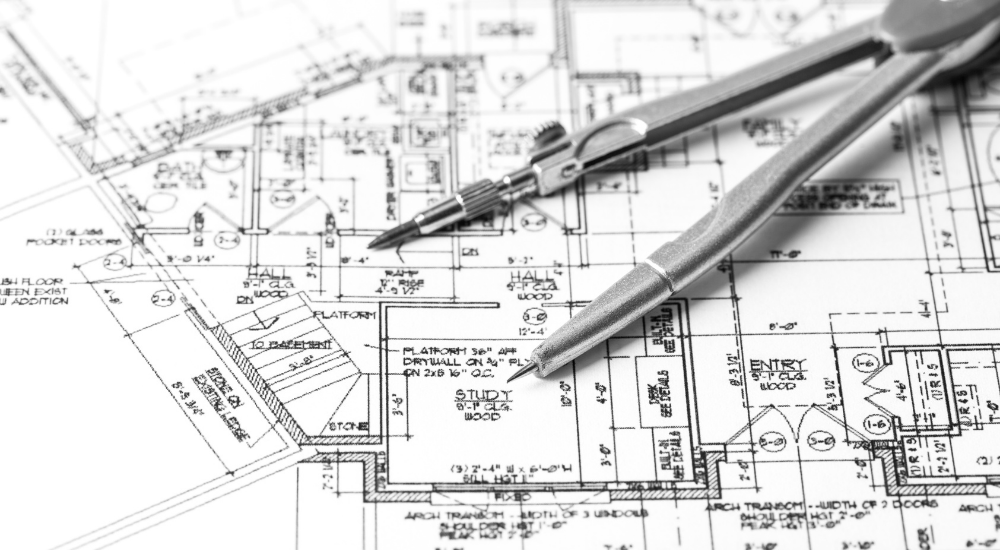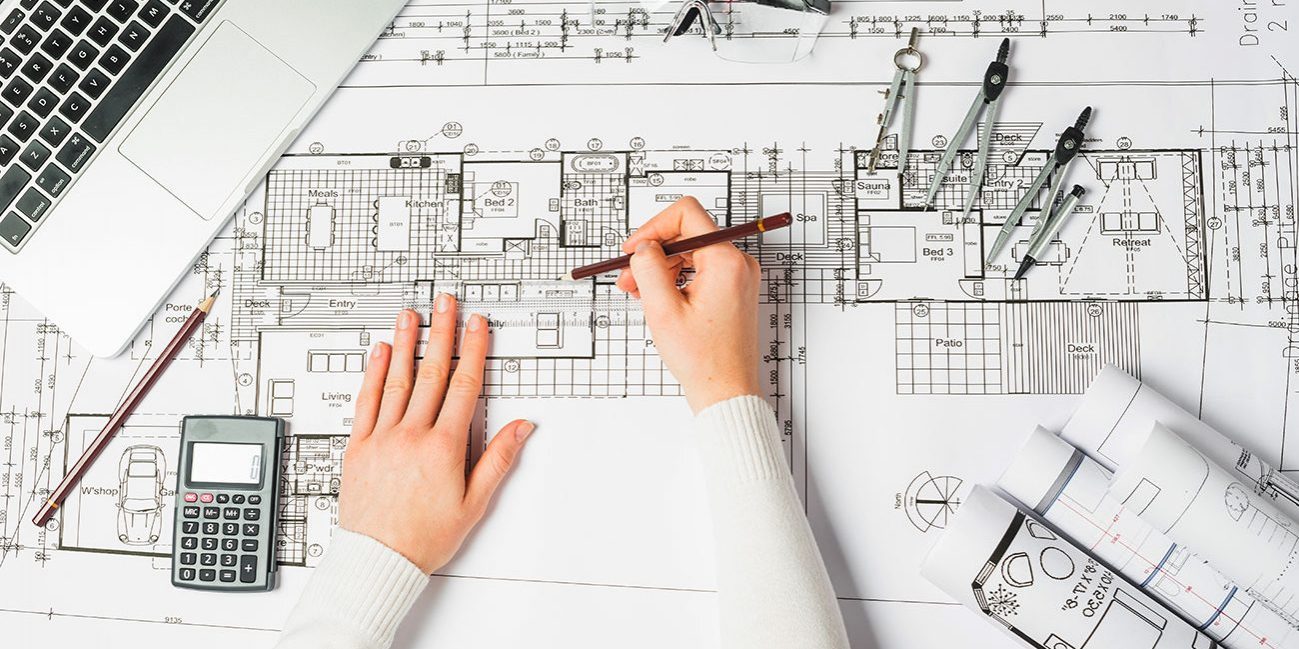Architect Rules for Designing Evergreen Interiors
Architect Rules for Designing Evergreen Interiors
Blog Article
Discover the Necessary Skills and Qualities Every Architect Need To Have
As a designer, you know that success in your field goes past just technological skills. Each high quality plays a critical function in your capacity to make spaces that influence and operate well.
Creativity and Technology
Creativity and development are at the heart of style, driving the design of spaces that motivate and work flawlessly. You'll regularly check out brand-new products, techniques, and innovations to enhance your layouts.
You'll likewise draw ideas from numerous resources-- nature, art, and even day-to-day life can spark fresh concepts. This ability to blend creativity with practicality permits you to address complex problems, guaranteeing your designs meet both practical and aesthetic needs.
Solid Interaction Skills
While developing impressive spaces requires creativity, solid interaction abilities are equally as crucial for engineers. You require to share your ideas clearly to clients, service providers, and staff member. Listening is equally as important; comprehending your customer's vision helps you create designs that really satisfy their requirements.
You'll typically have to describe intricate ideas in a way that's very easy to understand, whether you exist a proposition or reviewing products. Reliable communication cultivates collaboration, guaranteeing everyone is on the very same page throughout the job.
Structure relationships is crucial, as well. When you develop count on and connection, customers are most likely to share their problems and comments, causing far better end results.
Last but not least, don't take too lightly the power of body language and aesthetic aids. They can boost your message and make your presentations a lot more engaging. Solid communication skills not just boost your designs however also enhance your specialist partnerships in the architectural globe.
Technical Proficiency in Style Software
As you navigate the ever-evolving world of design, mastering style software program comes to be essential for equating your imaginative ideas into substantial strategies. Acquainting yourself with programs like AutoCAD, Revit, and SketchUp will certainly not only enhance your style abilities yet also enhance your operations. These devices allow you to create in-depth illustrations, 3D designs, and also simulations that can aid you envision and present your concepts extra effectively.
On a regular basis upgrading your skills and exploring new functions can establish you apart from your peers, guaranteeing your styles are exact and cutting-edge. Ultimately, technical effectiveness in design software application is a foundation of effective style, helping you bring your visions to life.
Comprehending of Engineering Concepts

Recognizing design principles additionally enables you to prepare for prospective challenges early in the layout procedure. You can make informed options that enhance your layouts when you're conscious of how various materials act under various problems. Your designs ought to not just be visually pleasing however lasting and also functional.
Additionally, a strong understanding of engineering principles permits you to innovate within constraints. You can push innovative boundaries while still adhering to security standards. Eventually, this understanding enriches your architectural technique and establishes you apart in a competitive field.
Job Monitoring Abilities
Effective job monitoring abilities are necessary for architects, enabling you to supervise all elements of a job from perception to conclusion. You'll require to coordinate with various stakeholders, including engineers, professionals, and clients, making sure everybody's on the exact same page. Setting clear objectives, timelines, and spending plans is basic; it aids you maintain the job on the right track and within scope.
As an architect, you should also be experienced at threat monitoring, determining prospective issues prior to they intensify. Strong interaction skills are necessary, enabling you to articulate your vision and inspire your team. You'll gain from being organized and detail-oriented, as this helps streamline procedures and prevent costly hold-ups.
Furthermore, adaptability is key; tasks commonly progress, and being adaptable permits you to react efficiently to modifications. Eventually, your task monitoring skills can greatly affect the success of your building undertakings, guaranteeing you provide top quality results on schedule and within budget.
Interest to Detail
While handling projects is crucial, your focus to detail can make a considerable difference in the high quality of your work. Every line you draw, every product you select, and every small specification you keep in mind adds to the general success of a task. You require to be precise, making certain that your designs not only fulfill aesthetic criteria but also stick to building codes and guidelines.
This caution not only conserves you time and sources however likewise develops your credibility as a reputable Architect. Embrace this ability, and let it direct your design procedure, making sure that your vision is carried out perfectly.
Adaptability and Problem-Solving Abilities
As a designer, you'll commonly deal with unexpected adjustments in style and job demands. Your ability to welcome these shifts and find innovative solutions is crucial for success. Remaining flexible in your strategy not only boosts your analytical abilities but also maintains your tasks on the right track.
Embracing Modification in Design
Welcoming modification in layout is important for engineers, especially when guiding evolving customer demands and emerging innovations. You require to grow adaptability, as jobs commonly shift instructions based on new understandings or restrictions. Being open Continue to change allows you to explore cutting-edge methods and develop remedies that reverberate with your clients.
When confronted with obstacles, your analytic abilities come right into play. You'll often need to rethink concepts and adjust strategies on the fly, guaranteeing that the final result check my site straightens with the customer's vision while meeting safety and security and regulative standards. By being versatile and resourceful, you not just boost your styles however also construct count on with your clients, showing that you can browse the complexities of modern-day architecture effectively.
Innovative Solutions to Difficulties

Versatility in Task Monitoring
While steering the complexities of task monitoring, adaptability becomes a vital possession for architects. You'll usually encounter unanticipated challenges, from layout adjustments to budget plan restraints, requiring fast thinking and versatility. Accepting change permits you to pivot your approaches and find innovative services, ensuring project success.
Strong problem-solving abilities are important; they allow you to assess situations, weigh alternatives, and implement effective options on the fly. When working with varied groups, being open to comments and alternative concepts promotes collaboration and triggers creativity.
Often Asked Questions
What Educational History Is Needed to Come To Be an Architect?
To come to be an architect, you'll require at least an expert level in architecture, typically a Bachelor's or Master's. Completing an internship and acquiring licensure with examinations is necessary for your job improvement.
Just How Crucial Is Networking in the Architecture Area?
Networking's necessary in design. It aids you build connections, find task opportunities, and gain understandings from seasoned experts. By attaching with others, you improve your job potential customers and remain upgraded on market patterns and growths.
What Are the Typical Profession Paths for Architects?
Typical job courses for architects consist of design functions in companies, task administration, metropolitan planning, and specialized areas like lasting style. Architect. You may additionally check out teaching or consulting, relying on your experiences and rate of interests
Just How Can Engineers Stay Updated With Sector Fads?
To stay updated with sector fads, you must frequently attend conferences, join professional associations, register for pertinent magazines, and involve with on-line forums. Networking with peers additionally assists you get insights into emerging developments in style.
What Role Does Sustainability Play in Modern Design?
Sustainability forms modern design by emphasizing energy performance, resource preservation, and environmentally friendly materials. You'll develop areas that decrease environmental influence, see this page boost owner well-being, and reply to climate challenges, making your styles a lot more impactful and relevant.
While making amazing rooms needs creativity, solid interaction abilities are simply as important for engineers. Solid communication skills not only raise your styles however additionally enhance your specialist relationships in the architectural globe.
Effectiveness in design software application lays the groundwork for a much deeper understanding of engineering concepts, which is necessary for engineers.As an architect, you'll commonly deal with unexpected adjustments in layout and job demands.Accepting modification in layout is vital for designers, especially when guiding advancing client requirements and emerging technologies.
Report this page